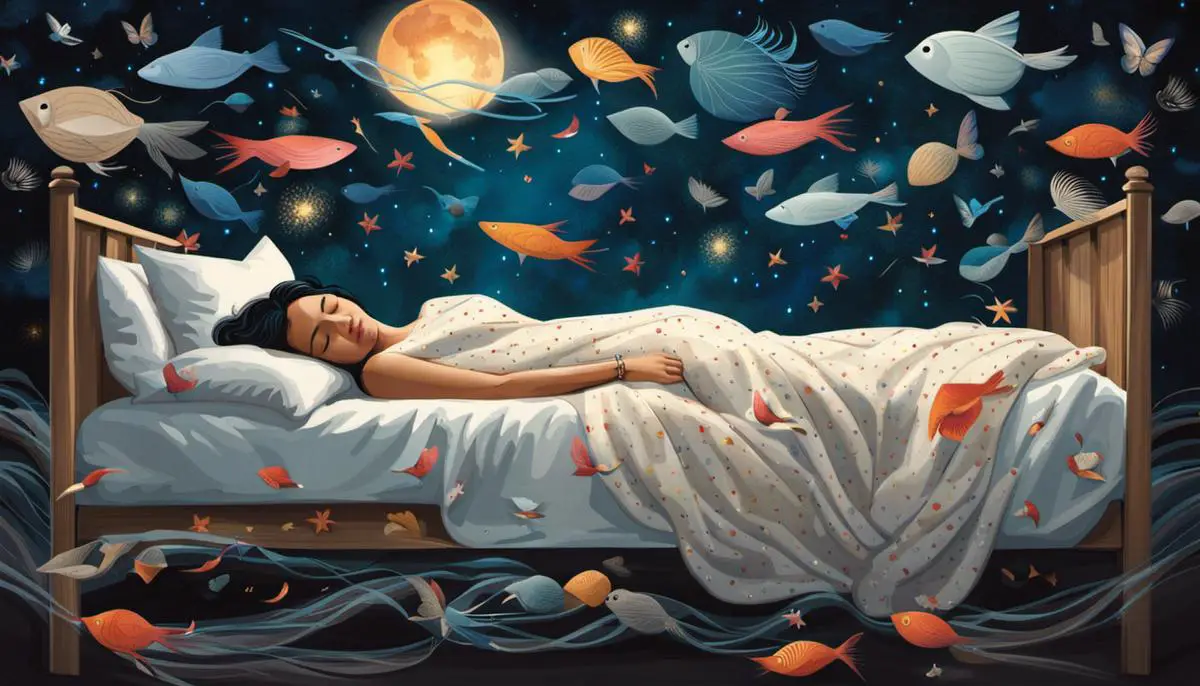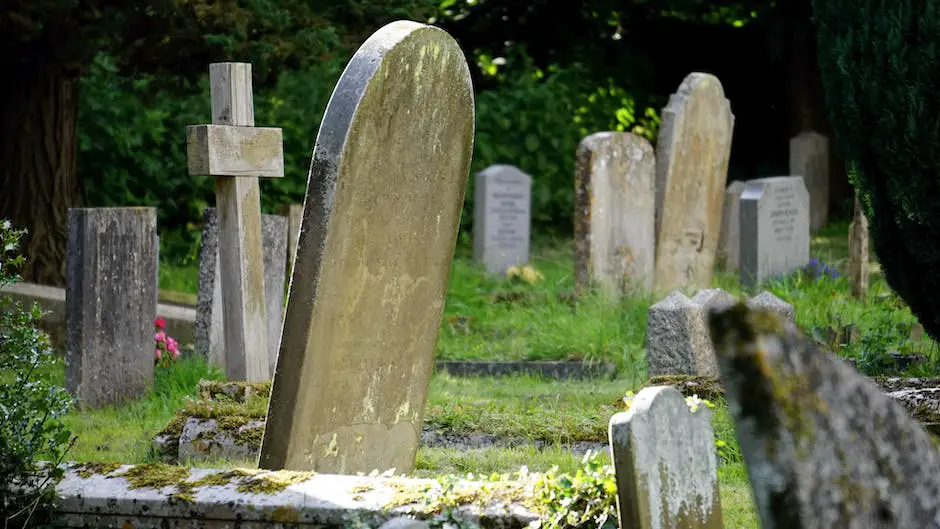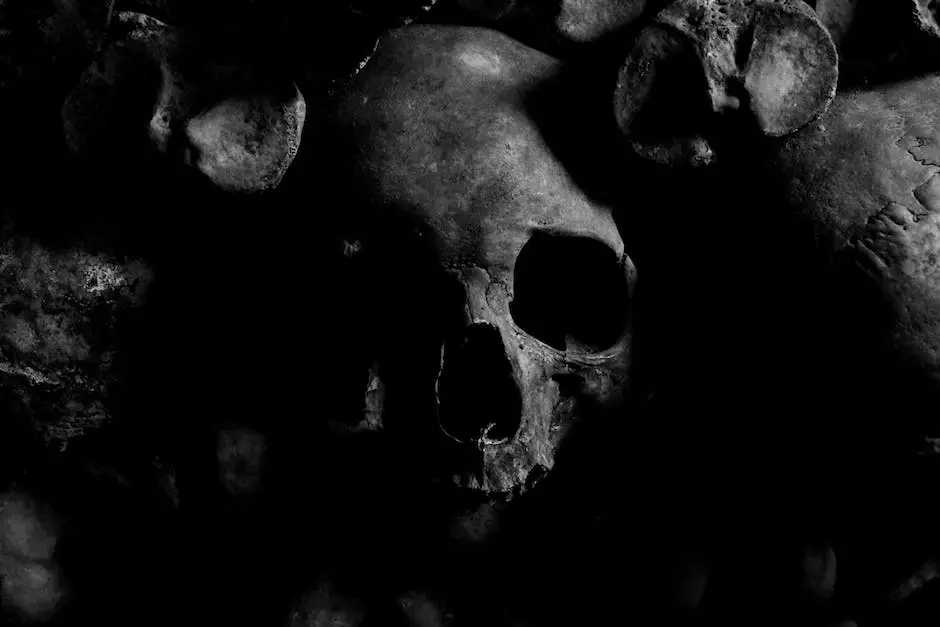Unraveling the complex tapestry of our dreams, particularly those tinged with the somber hues of death, can often seem like navigating a labyrinth. The phenomenon of dreaming about death, whether our own or that of someone else, although unsettling, is quite common and integral to our human psyche. This essay takes a deep dive into understanding the intriguing concept of death in dreams. From exploring its psychological underpinnings, analyzing common themes and symbols, to providing coping mechanisms to manage disturbing dreams, this discourse aims to equip readers with the necessary tools to interpret and deal with such weighty dream motifs.
Understanding the Concept of Death in Dreams
Understanding the Concept of Death in Dreams
Dreams about death are common and can be highly emotional experiences. They typically relate not to our own physical demise but to change, reflection, or a conclusion of a certain phase or aspect of our life. The unconscious mind utilizes death as a metaphor to express such points of transition.
Psychological Aspects of Death in Dreams
From a psychological perspective, Sigmund Freud, the founder of psychoanalysis, believed that dreams about death are not associated with mortality. Instead, they indicate a long-cherished desire to terminate something or move on from a certain situation in life. On the other hand, Carl Jung, a Swiss psychiatrist and founder of analytical psychology, recognized such dreams as significant symbols for a transformational process in the dreamer’s life.
Other psychological interpretations hinge on the condition that the person dying in the dream is known to the dreamer. For instance, dreaming of a lover’s death could indicate a desire for a change in the relationship, while a colleague’s death might symbolize a longing for better work-life balance.
Emotional Associations with Death in Dreams
The emotions experienced during dreams about death can range from fear and anxiety to relief and acceptance. These emotional responses often reflect the dreamer’s attitudes and emotions regarding change or endings in their waking life. For example, if the dream instills fear and panic, it could imply that the dreamer is afraid of an upcoming change or is resisting the end of a particular phase.
Cultural, Religious, and Societal Influences on Perception of Death in Dreams
Cultural, religious and societal beliefs play a substantial role in shaping our perception of death in dreams. In many Eastern cultures and traditions, death in dreams is considered a positive sign indicating rebirth, fortune, or a new beginning. On the contrary, Western societies often view dreams about death negatively, associating them with actual death, disaster or crisis.
Religiously, interpretations can be diverse: in Christianity, dreams about death might be perceived as a spiritual message or warning; in Buddhism, they might be seen as an invitation to deeper meditation and understanding of the impermanence of life.
A Closer Look at Dreams About Death
Understanding dreams about death calls for a nuanced approach that considers the dreamer’s personal context, emotional health, cultural factors, and religious views. Contrary to what one might initially think, the presence of death in dreams usually indicates undergoing life changes rather than literal death. It is key to remember that such dreams are a regular aspect of our unconscious mind’s creative process, mirroring the dreamer’s attempts to grapple with the intricacies of their life.

Common Themes and Symbols Associated with Death in Dreams
Recurring Themes of Death in Dreams
While dreams about death can be unsettling, they are an ordinary part of the human dreaming experience. Over the years, psychologists and dream interpreters have discovered common themes in these dreams, such as witnessing a killing, undergoing the dreamer’s own death, or attending a funeral. Each of these scenarios carries profound symbolism that may help decode a dream’s underlying message.
Witnessing a Murder in Dreams
If you dream about witnessing a murder, your unconscious may be trying to bring to your attention an issue that you’re ignoring during your waking hours. This could be a situation or relationship that is causing you harm or distress. Witnessing a murder could also symbolize a major transformation or change in your life, indicating that a part of you or a phase in your life is coming to an ‘end’.
Dreaming About Your Own Death
Contrary to popular belief, dreaming about your own death doesn’t anticipate physical death. Rather, it is more commonly interpreted as symbolizing change, rebirth, and transformation. This might be a sign that you are moving from one phase of life to another, which involves leaving behind old habits, beliefs, or experiences. Such a dream can also signify a desire for escaping stressful or difficult circumstances in life.
Attending a Funeral in Dreams
Dreams about attending a funeral can represent fear or anxiety about change, signifying the end of one thing and the start of something new. Attending a funeral could signify the end of negative emotions, a troubled relationship, an old habit or behavior. The transition can be a positive sign of personal growth and emotional healing.
Symbolism of Death in Dreams
Although the concept of death can evoke feelings of fear or discomfort, its symbolism in dreams often carries more nuanced, transformative meanings. Death in dreams signifies the end of a phase, situation or relationship. It suggests transition, personal growth, and change. Embracing and understanding this symbolism could provide you with valuable insights about your personal journey, your emotional struggles, and your potential for transformation and growth.
Possible Influences on Death Dreams
Several factors can influence your likelihood to dream about death, including stress, loss or the processing of traumatic events. Significant life changes, like moving or starting a new job, can also spark dreams about death. Remember that these dreams are a normal part of the dreaming process, and they can provide important insights into your feelings, fears, and hopes.
Key Aspects in Interpreting Dreams
While dealing with dreams about death, it’s vital to closely assess your subjective feelings and reactions associated within the dream. Take note of who the dying person is in the dream, the causes surrounding their death, and your emotional response. Your personal experiences and feelings noticeably shape your dream’s interpretation. Gaining a clearer understanding of these dreams can offer you deeper insights into your waking life feelings related to change, transformation, loss, and fear.

Psychological Perspectives on Death-related Dreams
Death Dreams and The Role of our Subconscious Mind
As per the widely accepted theories of Sigmund Freud, dreams serve as the direct avenue to our unconscious mind. Thus, dreams in which someone dies could be indications of our subconscious mind attempting to surface suppressed thoughts, anxieties, or emotions. Our deepest fears and yet-to-be-processed emotions and experiences reside in the subconscious, which sometimes get projected through our dreams. Therefore, death-related dreams should not necessarily be taken at face value, but rather considered symbolically reflecting some unresolved emotional conflicts or fear of the unknown.
Carl Jung’s Perspective on Dreams of Death
Switching to Carl Jung’s perspective, dreams are a form of “self-regulation,” where the content signifies problems in the dreamer’s waking life that he or she needs to resolve. Thus, if you are dreaming of someone else’s death, it could be a reflection of parts within you that need to change or die. It could symbolize transformation, the end of something, and the start of a new phase of life. Jung proposed that these dreams were not proposing actual physical death, but rather signifying significant psychological change.
Death-related Dreams and Anxiety
Dreams about death may also be linked to anxiety. Death, as a concept, often represents the ultimate fear. It is common for people to dream of death if they are anxious or fearful about a situation in their life that they may be unable to control. If someone is experiencing a high level of stress or anxiety, their dreams may manifest these feelings symbolically through death scenarios.
Relationship Between Death Dreams and Repressed Emotions
Repressed emotions could also play a significant role in experiencing dreams about someone dying. These emotions, often associated with traumatic or negative experiences, are pushed into the subconscious to help individuals cope with their daily lives. However, during sleep, these repressed feelings find a way to surface into our consciousness via dreams. Hence, dreaming of death may symbolically manifest these buried emotions, hinting at a need for addressing them.
Death Dreams as an Indication of Personal Growth
Counter to the more negative interpretations, dreams of death might also suggest personal growth and self-transformation. In this perspective, dreaming about death, especially when concerning someone else’s death, could symbolize the end of a phase or aspect in your life that you associate with that person. It could represent the death of the old and the birth of the new, marking a phase of transition in your life.
The Impact of Cultural Perceptions on Death-related Dreams
Furthermore, one’s cultural background and beliefs might significantly impact the interpretation of dreams about death. In some cultures, dreaming of death is viewed as a positive sign indicating change, rebirth, and transformation, while in others, it could be interpreted as an omen of bad luck or an impending disaster.
In concluding thoughts
It’s imperative to be mindful of the fact that the interpretation of dreams is often unique to the individual experiencing them. One’s personal situation, past experiences, emotions, fears, and their cultural background all play a significant role in decoding the meaning of the dream. Therefore, a generalized interpretation might not always provide the desired relevance or insight.

Dream Therapy and Coping Mechanisms for Disturbing Dreams
Deciphering Dreams About Death
Experiencing dreams about death can be a daunting phenomenon, often instilling feelings of fear and unease. However, they rarely predict imminent death or future events. In the metaphorical palette of dreams, the concept of death usually represents the end of a phase and the beginning of another, indicating significant changes or transformations in one’s life. Hence, understanding the context of the dream becomes critical when it comes to piecing together the meaning of dreams associated with death.
Cognitive-Behavioral Therapy (CBT) for Disturbing Dreams
Cognitive-behavioral therapy (CBT) can be helpful in dealing with disturbing dreams. This form of psychotherapy challenges harmful patterns of thought and helps create new thinking habits. It works on the principle that our thoughts, rather than external events, determine how we feel or behave. In context to dreams about death, CBT helps the dreamer reinterpret the dream in a less threatening manner by changing their beliefs and attitudes about death.
Dream Therapy
Dream therapy, another method to deal with disturbing dreams, integrates dream understanding into psychotherapy, providing a comprehensive understanding of self. It involves keeping a “dream journal” to record dreams immediately upon waking. This method aims to discover patterns in dreams and link them with feelings or emotions in waking life. Dream therapy can help the dreamer understand the symbolic language of dreams, making it easier to view death-related dreams as metaphors for change or transformation, rather than literal death.
Relaxation Methods
Relaxation methods can play a vital role in controlling negative emotions provoked by disturbance dreams. Techniques such as meditation, controlled breathing, and progressive muscle relaxation can help release tension and reduce anxiety before sleep. Regular practice can lead to better sleep quality and possibly fewer disturbing dreams.
Professional Help When Needed
It’s essential to recognize when you might need professional help. If dreams about death persist, lead to significant sleep disruption, or cause daytime distress, it might be time to seek the help of a professional mental health expert. Psychologists or psychiatrists can help provide more personalized coping strategies, such as individual CBT sessions, specialized dream therapy, or pharmacological interventions.
In Essence
If you regularly have dreams about death that cause distress, remember the symbolic nature of dreams – change and transformation are often represented as death. Use tools like CBT, dream therapy, and relaxation methods to reshape understanding of these dreams, and don’t hesitate to seek professional help when needed. You are not alone in your struggle, and there are many therapeutic strategies available to cope with disturbing dreams.

Having traversed the intricate landscape of dreams about death, it’s clear that such dreams often symbolize inner transformations, anxiety, or repressed emotions, rather than literal death itself. While they are generally more reflective of one’s own life and psyche, they can induce significant distress. Understanding the symbols and themes inherent in these dreams is a key stride towards unravelling their cryptic messages. With the psychological perspectives of great thinkers like Freud and Jung contributing to a deeper understanding and the application of coping mechanisms including cognitive-behavioral therapy or dream therapy, we can better navigate these dreams and employ them as tools for self-exploration and growth.
